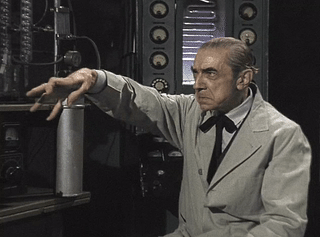Evidently the latest WorldCon has (among other things) revived the old gripes of “real” SF/F fans and what is or is not “real” SF/F.
I’d have thought the answer was obvious. If you like SF/F, you’re a fan. The end.
But no.
There are at least three threads of this argument I’ve come across in the last week:
1. The new writers who are winning Hugos are not “real” SF/F writers (or fans) because they haven’t read the canon. Put another way, you can’t write (or even appreciate) good SF/F until you have read the Golden Age classics first – your Heinleins and Campbells and EE Doc Smiths and Asimovs and Tolkiens and whatnot.
2. The SFF of the past was relevant and had Things To Say and nearly all modern SFF is pulp trash that doesn't say anything and isn't relevant and isn't worth reading because all the old stuff is still important, etc.
3. Today’s SF/F is all PC PoC LGBTQ+ SJW writers now (or books translated from the original Chinese) because publishers have decided that white cis men are not allowed to write SF/F anymore, thus there’s no “real” SF/F anymore because PoC LGBTQ+ SJW writers only write about PoC LGBTQ+ SJW stuff and not SCIENCE.
So, yeah. To address these one by one:
1. Nonsense.
2. Yr kidding, right?
3. Oh you poor lambs.
To save me a lot of typing I’ll refer you to some good responses for each of these from:
1. Catherynne Valente
2. Bibliotropic
3. John Scalzi
As for me:
What I can tell you is that (as a white cis dude) I am spoiled for choice in terms of interesting new SF/F to read, and the diversity of voices has a lot to do with that.
As for SF/F “canon”, there is one very obvious problem with the argument that you must be well-versed in SF/F canon to read or write modern SF/F: no one does this. People generally tend to read whatever is available at the time, and that is typically the contemporary stuff. Also, the availability of classic SF/F at that time will depend partly on what year you started. Today a lot of Golden Age SF/F is pretty easy to find – in 1977, when I started reading SF/F, it was limited to whatever might be available in the library or what was still in print at Waldenbooks. In short, it wasn't a lot.
This also means that what counts as classic SF/F is somewhat subjective. For example, in my case, anything published before 1977 is “classic” SF to me. For a millennial, anything by William Gibson, Pat Cadigan, John Shirley or any of the cyberpunk people would be considered classic (or at least old).
Anyway, I didn’t really spend much time with “canon” books when I got started. I remember trying Poul Anderson, Frederick Pohl, Michael Moorcock, Frank Herbert, JRR Tolkien and Isaac Asimov when I was in high school, and I simply could not get into them. A lot of my fellow students was into Dune, Lord of the Rings and Battlefield Earth (yes, I know, but bear with me) and I just didn’t get it.
My SF/F jams when I started out were contemporary writers like Douglas Adams, Pier Anthony, Alan Dean Foster, Steven Brust, Elizabeth Boyer, Charles de Lint and Ron Goulart, to name a few. I did dabble early in some classic stuff by the likes of Lester del Ray, Arthur C Clarke, Philip K Dick, Ray Bradbury and Heinlein (via Starship Troopers), but for the most part I stuck with the more contemporary books.
Over the years I would occasionally try a “classic”, but it was maybe 10 or 15 years ago that I started making a bigger effort to try out the Golden Age and New Wave authors. What I’ve found is that – perhaps unsurprisingly – some of it is great and I can’t believe I didn’t get into them before (Ursula K Le Guin is my go-to example here). And some of it is awful – great ideas, maybe, but bad writing, bad dialogue, bad characterization, and yes, a lot of macho racist sexist homophobic claptrap.
I can afford to overlook the latter because of white privilege (though it’s a lot harder for me to overlook it now than it was in high school), but I can totally see why people who have to deal with systemic racism, sexism and LGBTQ+phobia every day of their lives might not be able to overlook it, and I can think of no plausible reason why they should overlook it in the name of honouring the “canon”.
I fully recognize this also applies to the stuff I grew up reading that would now be considered “classic” by the young people reading contemporary SF/F today. Some of the books I read then may have aged well – Piers Anthony probably has not (though I’d need to re-read him to be certain, but I have a feeling I will cringe if I ever do).
Anyway, the point is that, frankly, there is no “canon”. You are under no obligation to explore older SF/F. It won’t make you appreciate the stuff you like any more than you already do.
I mean, this is just an obvious thing to me that I can’t even believe it needs saying, but here we are, so:
Read what you like. Don't let other people tell you what you ought to like. By all means explore older books when you think you’re ready to appreciate them or evaluate them – especially if your favorite authors name-check them. There’s much pleasure in discovering a great classic – you may well be rewarded. But if you don’t like it, that’s cool.
Hit the books,
This is dF













